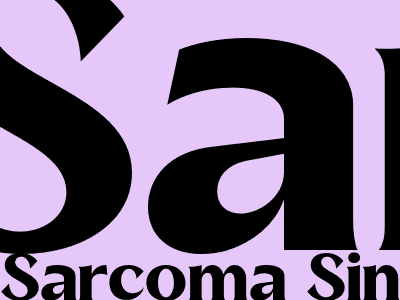Sarcoma Sinovial: Recognizing, Treating, and Managing a Rare Cancer
A Comprehensive Guide for Understanding and Addressing Sarcoma Sinovial
Introduction
Sarcoma synovial is a rare and often debilitating form of cancer that affects the soft tissues surrounding joints, tendons, and ligaments. Understanding the nature of this cancer, its treatment options, and management strategies is crucial for patients, caregivers, and healthcare providers alike.
Understanding Sarcoma Synovial: A Rare and Challenging Cancer
- Sarcoma synovial accounts for less than 1% of all soft tissue sarcomas.
- It typically affects individuals between the ages of 15 and 40.
- The exact causes of sarcoma synovial are unknown, but genetic factors and environmental exposures may play a role.
Symptoms of sarcoma synovial can vary depending on the location and size of the tumor. Common signs include:
- Swelling or lump in the vicinity of a joint
- Pain and tenderness in the affected area
- Limited range of motion
Treatment Options for Sarcoma Synovial: Tailored to Individual Needs
The treatment approach for sarcoma synovial is highly individualized and depends on several factors, including the stage of the cancer, the patient's overall health, and the location of the tumor. Treatment options may include:
- Surgery: Surgical removal of the tumor is often the primary treatment option.
- Radiation Therapy: Radiation therapy uses high-energy beams to target and destroy cancer cells.
- Chemotherapy: Chemotherapy involves the use of drugs to kill cancer cells throughout the body.
- Targeted Therapy: Targeted therapy drugs focus on specific molecules or proteins involved in cancer growth.
The choice of treatment or combination of treatments is carefully considered by a multidisciplinary team of specialists, including oncologists, surgeons, and radiation therapists.
Managing Sarcoma Synovial: Beyond Treatment
Effective management of sarcoma synovial extends beyond treatment and encompasses ongoing care and support for patients. This includes:
- Regular Follow-up: Regular checkups are essential to monitor the patient's progress and detect any signs of recurrence.
- Rehabilitation: Rehabilitation can help patients regain function and mobility after surgery or other treatments.
- Emotional Support: Sarcoma synovial can be an emotional challenge, and patients and their families may benefit from counseling and support groups.
Conclusion: Empowering Patients through Knowledge and Support
Sarcoma synovial is a rare but challenging cancer that requires specialized treatment and ongoing management. By understanding the nature of this cancer, the available treatment options, and the importance of supportive care, patients and their families can navigate the complexities of this disease and achieve the best possible outcomes.
For more information and support, please visit reputable organizations such as the American Cancer Society and the Sarcoma Alliance.

Comments